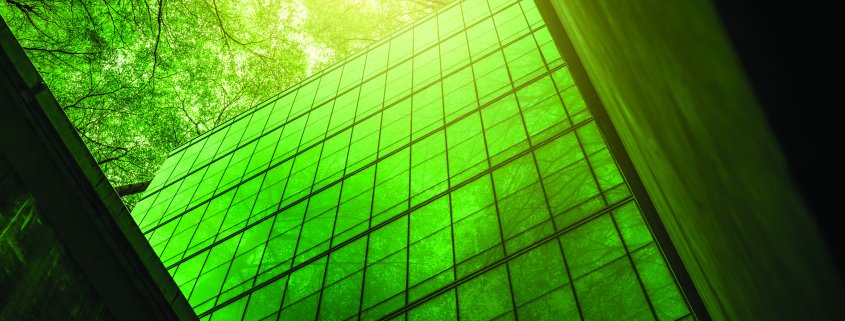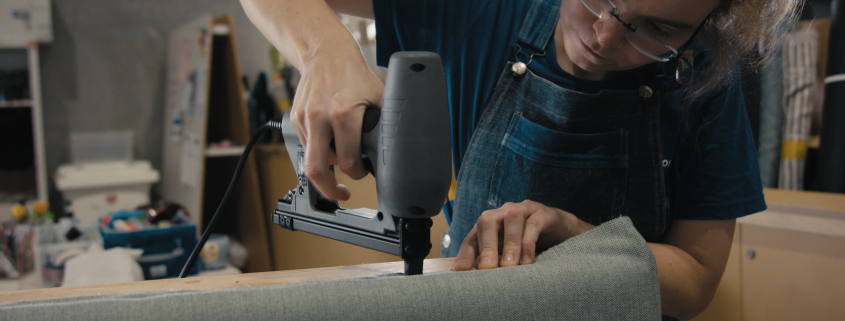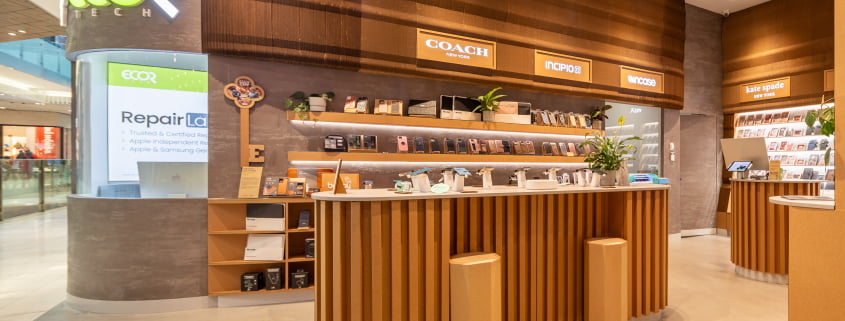In a veritable feast of recycled material, modular efficiency and functional flexibility, Studio Edwards has designed a zero-waste workplace for Today Design.
On Wurundjeri/Woiwurrung Country, Studio Edwards has reshaped, refitted and redefined 900 square metres of office space for digital agency, Today Design. The project is aimed at facilitating a workplace culture of collaboration and innovation, but it’s the sustainability angle of this project that really stands out.
More accurately, the sustainability emphasis is part and parcel of the programmatic design. All the walls, for example, are designed to be movable panels, allowing for the rearrangement of spaces according to changing needs. Meanwhile, modularity in terms of dimensions – all interior walls are a standard material sheet size of 2.4 metres in height – has minimised or removed the need to cut, and therefore waste, material.
Custom furniture continues the focus on movability and flexibility, with two-tone timber project tables, a built-in toolbox, oversized kitchen table with task lighting, raw cast aluminium studio chairs with custom fabric and quilted perimeter bench seating all designed to enable collaboration.
The list of intriguing materials goes on: magnets used to secure removable recycled denim panels, for instance, or the recycled sail cloth screens used to wrap informal lounge modules.
“Through studio testing, research and prototyping, we gained an understanding of how new, more sustainable materials could be used in more unconventional applications,” explains Studio Edwards Founder, Ben Edwards. “We sourced a recycled quilted denim that could provide much-needed acoustic insulation to the perimeter walls of the existing shell, adding tactility and softening the ambience of the interior. Then, by using heavy-duty magnets, we were able to attach the panels to the walls without the need for permanent fixings.”
Client collaboration was also a key part of the project, as might be expected given the audacious approach to waste and materiality. “Through close consultation, inclusivity within the design process and responding to their thoughts, concerns and feedback, we were able to build trust and understanding.”
Edwards continues: “The clients were genuinely passionate about sustainability and, for us, it was a great project to collaborate on. Every suggestion was met with eagerness to test, allowing innovative ideas to flow naturally and creating opportunities to treat the space as a prototype for workspaces of the future!”
For Edwards, the approach is not a radical one: “As architects and designers, we must consider every project in terms of its impact to the environment. We must ask ourselves questions such as: How can we improve the building/fabrication process to reduce waste and improve efficiencies? What is the project’s lifecycle? How will the space be used in the future? Can it adapt to changing needs?”
Elsewhere, a kitchen and library sit off the primary circulation path which leads to a central spine and presentation area. Studio rooms are connected via a series of pivoting walls, allowing for flexible room configurations. Smaller work pods then surround a central stair, while a relaxed workspace made up pf scaffolded lounge modules is created along the northern perimeter.
This workplace has been constructed entirely from readily available materials without applied finishes. Timber-framed walls, for instance, use OSB board together with translucent corrugated sheeting. “In terms of aesthetics, we let the materiality speak for itself – expressed and visible without the need for applied finishes,” says Edwards.
As a certified social enterprise, Circonomy provides circular services that mobilise otherwise dormant goods by repairing, refurbishing and rehoming products, creating positive impacts for people and the planet in the process.
Starting from humble beginnings as a neighbourhood garage sale in 2013 as the World’s Biggest Garage Sale, Circonomy has celebrated a decade of transformative impact, reshaping the way Australians perceive and interact with dormant goods. This remarkable journey began with Founder and Chief Evangelist, Yas Grigaliunas, who recognised the untapped potential of unused items in homes, offices, and retail stores and set out to mobilise them for the benefit of those in need.
Circularity is becoming popular in consumer markets, with growing refurbishment efforts within traditional retailers. However, Circonomy is breaking new ground by championing the integration of circularity in business-to-business (B2B) environments. By pioneering this approach, Circonomy is setting the stage for a more comprehensive and impactful adoption of circular practices across various sectors through circular services – including through large-scale sustainable de-fit and re-fit solutions for the property sector.
Growth Through a Consumer-Focused Lens
According to Statista as of 2023, the demand for sustainable goods and services has risen significantly across Australia, with consumers taking into consideration sustainability efforts from businesses they are supporting.
Conscious consumerism is on the rise, and expectations on businesses has never been higher. Consumers are now placing greater emphasis on the alignment between a brand’s values and their actions. Transparency, authenticity and sustainability is in – and greenwashing is out. This shift reflects the values of everyday Australian’s recognising the importance of business accountability and sustainability in their part of reducing environmental impact.
Circonomy has forged partnerships with businesses across various sectors, including across the property industry, retail, education, and hospitality and other large corporates, to develop and implement sustainable practices. This commitment to sustainability has helped fostered business growth while championing sustainable practices that resonate with current values held by the community and consumers.
Sustainability often comes across as daunting, following a linear approach to execution. Circonomy is changing this by providing accessible and comprehensive sustainability solutions. Circonomy’s circular services encompass retail solutions, sustainable office defits and refits, refurbished tech, circular asset management, and sustainable operations to make sustainability possible in all aspects of business.
Circonomy’s services have been developed to target sustainable solutions for businesses across a number of industries, and are tailored to meet your needs. Through partnerships and case studies, Circonomy has developed innovative and structured sustainability practices to help Australian businesses scale up to one that is aligned with current values amongst the community and addresses the impact of commercial waste in Australia.
Mirvac and Circonomy Project: Pioneering Circular Office Spaces
In Melbourne, an exciting collaboration between Mirvac and Circonomy unfolded, showcasing a commitment to circularity and sustainability. The goal of this project was to transform office spaces, unlock new social procurement opportunities, and make a positive social and environmental impact.
Mirvac and Circonomy embarked on an ambitious project together, aiming to remove items and materials from 12 floors with the goal of diverting 100% of these materials from landfill. With the expertise provided by Circonomy, they offered an end-to-end solution to maximize the value of the resources removed during the strip-out process, effectively aligning with Mirvac’s sustainability goals.
This partnership successfully:
- repurposed and rehomed over 3,000 pieces of loose furniture
- cleaned, removed, and repackaged 792 large commercial blinds
- removed approximately 7,920 ceiling tiles for reuse
- protected existing carpet tiles for reuse in the new fitout.
Through this process, 180 tonnes of carbon has been avoided through the reuse of products and materials within the building and the wider community. The collaborative endeavour provided Mirvac with a platform to demonstrate their commitment to sustainability, while simultaneously empowering Circonomy to enhance their sustainable defit operations service and extend their reach into Victoria and NSW, and across Australia more broadly.
Circonomy’s remarkable growth is exemplified by the range of circular services it offers to companies, enabling them to embrace sustainable practices and enhance their social and environmental impact. These services serve as a testament to Circonomy’s commitment to driving positive change and empowering businesses to adopt more environmentally conscious approaches. Circonomy may have started over 10 years ago, but their impact is only just beginning as they work to create a world without waste.
In a bustling city like Melbourne, where technology plays a crucial role in our daily lives, there is one phone repair business that stands out from the rest.
Refurbished phone and Apple Independent Repairer ecoR Tech provides sustainable and environmentally-friendly alternatives to the purchase of phones, tablets and other tech products to help reduce tech waste.
But it’s the company’s opening of its flagship store which has reimagined the customer experience by using an unconventional design – a shop made from recycled cardboard.
CEO and Co-founder of ecoR Tech Brent Bryce is the man behind the vision and his innovative idea was sparked from a cause close to his heart.
“I’ve spent more than 25 years in telecommunications and have observed the remarkable proliferation of technology, particularly in the form of phones, tablets and laptops, and unfortunately this has also contributed to the culture of disposability,” Brent says.
“There is a need for change. The global generation of e-waste is more than 54 million metric tons each year signalling future environmental concerns about the impact this will have on our society.
“That’s why it’s crucial to educate and advocate for alternative practices, such as opting to reduce, reuse and recycle instead of consistently purchasing new products.”
With his strong focus on sustainability and the environment, Brent set out to create a space that embodied these principles.
“Collaborating with our interior designer, we outlined our vision for a sustainable and eco-friendly fitout.”
To truly convey ecoR Tech’s commitment to sustainability, Brent says something impactful was needed.
“…That’s when I proposed the idea of making the store out of cardboard.”
Brent admits the unusual proposal of using cardboard as the primary interior material was met with scepticism and regarded as a joke among the company’s leadership team and board, but he was determined for the idea to work.
Playing a pivotal role in transforming the vision was local Melbourne-based event and prop company The Cardboard Mill who joined forces with ecoR Tech’s interior designer, Corso Interior Architecture, shopfitter Q1Built, and joiner Atco Interiors.
“Together, we set out to design, manufacture, and install a store predominantly constructed from cardboard – a first-of-its-kind venture for all involved.
“Throughout the process, we encountered numerous valuable lessons, particularly in navigating the complexities of obtaining support and approvals from the design team at Vicinity Centres.
“However, the ultimate sense of achievement and satisfaction when it was completed was truly remarkable, and all those who contributed should take great pride in their involvement.”
Following a 10-week fitout, the walls, furniture, and even the shelves that display a range of refurbished smartphones are all constructed from sturdy, recycled cardboard.
“Thousands of sheets of cardboard were meticulously cut and bonded together to form the amazing contours, allowing for captivating interplays of light and shadow throughout the store,” Brent points out.
On June 27, 2023, the store was officially opened by Melbourne Lord Mayor Sally Capp in front of the team who contributed to the collaborative project.
When asked if he’d alter any aspects of the design since doors opened at the store, Brent says there is always bound to be improvements.
“Like with any first-time builds and leading-edge designs, there are always learnings and things you could do differently or change to improve the look and more importantly the process to be more efficient and impactful.
“But overall, we are very happy with how the store presents and how our customers can feel and see a distinct difference to how we present in the market compared to our competitors.”
The store serves as a reminder that innovation and eco-friendly choices can be both bold and beautiful.
How it all came together
THE INTERIOR DESIGNER – Corso Interior Architecture – Director Joey Corso
When presented with the idea of designing a ‘cardboard store’, Corso Interior Architecture Director Joey says he was proud to take on the challenge.
“It was such an amazing idea. We began brainstorming ways in which we could use the product in a creative way to make the material shine,” Joey remembers.
“I did have concerns about its strength, however the way in which we ended up using it – gluing each piece together so that the edge was exposed – proved to be both creative and strong enough to withstand traffic.”
The interior design involved testing the capabilities of the product and the team set about designing curved walls and sculpture-like surfaces.
“The cardboard was made off-site in modules, then brought in and erected in place.
“During the production process, The Cardboard Mill was required to modify some of the finer details in order for the design to be possible.”
But overall, the end product was very close to Joey’s design vision.
THE CARDBOARD EXPERTS – The Cardboard Mill – Managing Director Ian Douglas
The Cardboard Mill took their combined experience in temporary installations and cardboard to undertake the research and development component of the project to make ecoR Tech’s flagship store come to life as a permanent store made of cardboard.
“This is what we were born for, and what we love,” Ian says.
“It wasn’t our first walk in the park, we’re amazing at temporary – tradeshows and more ephemeral installations being our stock in trade.
“Our first significant project in this direction was the Bridge Road Brewery Site in Brunswick, which was meant to be up for three months, but is still there 18 months later.
“It was very much in consultation with ecoR Tech’s architect, the client, builder, and ourselves about what we could make more recyclable – in fact, the cardboard used has at least 70 percent recycled content in it and is curb side recyclable, or backyard compostable.”
But it wasn’t without a challenge or two.
“Cardboard had not been approved for use in permanent fixture in installations, so we had to work with engineers to manage loads and fixing techniques, plus develop and validate technical documentation to meet both workplace and building requirements.”
THE JOINER – Atco Interiors – Managing Director Adrian Farrugia
“You’ve got to be kidding me”.
That was Adrian Farrugia’s first reaction when he was approached to be part of ecoR Tech’s cardboard store.
“I’d never made joinery from cardboard before,” Adrian says.
“The technical challenges included making
everything work with the different thickness of cardboard, making sure everything lines up at the end of the project.”
But seeing the end project was quite simply “amazing”.
“Stepping back and saying ‘we actually did it’ was a proud moment. It was our first time working with cardboard and hopefully not the last.”
THE SHOPFITTER – Q1Built – Director Ray Borg
A micro cement floor, seamless BOH rendered door, the mounting and commissioning of a cylinder- shaped LCD screen around an existing pillar and extensive prep-work required to cater to the cardboard’s unique engineering and installation requirements – these were all technical challenges faced by the shopfitter, Ray Borg.
When told about the project, Ray remembers thinking: ‘wow this is different’.
He says the result could either be a hit or a risk if not executed properly.
“Ordering the tasks, dependencies and the timing was challenging,” he explains.
“The shop fitout had to keep moving to deliver on time while the cardboard tiles were manufactured and installed.
“An example was the time it took for the curved viewing glass to be fabricated. Even though the feature render had to butt up against the glass we had to proceed with the render without the glass being in place so that the joinery could be put in place to be covered in cardboard.”
Ray says he was proud to see the level of
collaboration between the suppliers and trades on the project, and to see all the hard work come to life at the official opening.
“When the feature lights went on – highlighting sections of the natural concrete floors, rendered wall, cardboard bulkheads and joinery – it gave the shop an earthy and natural feel.”
Redefining the retail experience through sustainable design is no small feat, but beloved Australian fashion brand, Country Road, is aiming to do exactly that.
The opening of the Chadstone, Melbourne store in 2019 saw not only Country Road’s first, but the first 5 Star Green Star – Interiors rated fashion retail store in the country. Certified by the Green Building Council of Australia (GBCA) and achieving a 5 Star Green Star – Interiors rating, indicating Australian Excellence, saw Country Road move to the forefront of what is possible when ambitious, sustainably minded teams come together.
The Green Building Council of Australia has been steadily working to lead the sustainable revolution of the built environment since its founding in 2002. With a focus on resilience, future readiness, and wellbeing, the holistic and voluntary rating system, Green Star, aims to help clients like Country Road achieve sustainability goals. The interiors rating tool is encouraging a new approach to design and construction of fitouts, one that highlights the selection of low-impact materials, improved indoor air quality, energy and water efficiency, and waste reductions, to name a few.
For Davina Dowle, Country Road Group’s Sustainability Specialist, the GBCA’s solid portfolio, matched with their well-developed system and shared aspirations, led to them turning to Green Star for support on this journey. Moreover, being an Australian rating system made Green Star the obvious choice.
“From the sourcing of fabrics to working with Australian manufacturers, the Country Road brand emphasises the importance of supporting endeavours native to Australia. The brand also always aspires to support local providers in as many aspects as possible. Therefore, while there are many other applicable validation and certification systems available globally, we opted for an Australian rating system.”
The process of targeting best practice in-store design begins with sourcing a team and materials that align with the requirements of achieving a Green Star rating, all while keeping a well-known brand’s aesthetic in the spotlight. For Davina, this meant a systematic approach to give the team every opportunity to succeed from the outset.
“We firstly provided a brief to our architectural team, who helped us align the requirements of Green Star with the aesthetic requirements of our Country Road stores. We then updated our material and finishes selections based on their research findings and worked extensively and directly with our existing local suppliers to secure internationally recognised third-party ratings for the bulk of our fixtures.”
From parquetry flooring rescued from old buildings, wall paneling made from recycled paper, carpet crafted from discarded fishing nets, and benchtops made with damaged Country Road ceramics and marble waste — the team left no stone unturned with what is possible in a sustainable and healthy retail renovation.
Brett Robinson, Senior Project Manager at One68 – the design consultants who worked with Country Road across several of its Green Star stores – said working closely with suppliers was key to meeting Country Road’s desired outcome.
“As a client, Country Road has very clear sustainability outcomes they need to achieve in order to receive the 5 Star Green Star – Interiors accreditation. As an example, for the Bayside project, One68 had to engage suppliers and sub-contractors who could meet these requirements, including:
Electrical – Meet GBCA’s Best Practise Guidelines for PVC
Paint – Paint’s with Low Volatile Organic Compounds (VOC) were used
Timber – All timber used in the project were responsibly sourced (Chain of Custody certificates) CFC/chain of custody timbers and responsibly sourced materials
Circular – Re-using as much from old store fitouts as possible e.g., plywood, flooring levels, ceilings, walls etc.”
An important factor of the 5 Star Green Star – Interiors rating tool is the human element, something that remains a defining element of the success of any brick-and-mortar.
“The staff are integral to the process of certification as they help us gather store-specific evidence required for our Green Star submissions. They love feeling part of the process while also being in a vibrant space that is both healthier for them and more environmentally friendly,” explained Davina.
“The customers and visitors often compliment the staff on the store’s interior and are curious of the materials and finishes used. They are interested in the stories behind the material choice and frequently ask about the Green Star rating and want to understand the significance of a 5-star rating.”
Now with twelve, 5 Star Green Star – Interiors rated stores across the country and seven more targeting Australian Excellence with a 5 Star rating, it’s no wonder that this year Country Road won the NORA Sustainability award for best in-store sustainability innovation. For Davina and the team, winning the award confirmed to them the value of collaboration and efficiency when working towards a common goal.
“It was exciting to be shortlisted and a very happy moment when we won. It was an award that celebrated the whole team, and all the people who worked with us on our 5-star Green Star store fitouts.”
As for where Country Road is headed, simply put, more certified Green Star rated stores. But this time the team is targeting a 6 Star Green Star rating, which, as Davina agrees, is pushing the team to rethink several aspects of the current design concept.
“We see our achievements as a ‘work in progress’, particularly with the ambitious new Green Star Interiors tool (Green Star Fitouts) expected to be released soon,” said Davina.
“Country Road is currently working on its new standard Green Star approach, which will be key for the next batch of store certifications. This work is guiding our exploration of new initiatives that could be integrated into the design of our future stores. Finally, we are now also looking into the possibility of completing a Life Cycle Assessment of our interior fitout, with the aim to raise the bar of fashion retail fitout even higher.”
GBCA congratulates Country Road for its Green Star achievements to date and applauds the retailer for its leadership in creating healthier, more sustainable interiors. In early September, GBCA released a consultation paper on the next version of its tool for interiors – Green Star Fitouts, work made possible thanks to the support of GBCA’s Future Focus partners. Industry is encouraged to read the paper and provide feedback on how the tool could best serve its users into the future, both those who have never used the tool before, and those who are seasoned users. Find out more at www.gbca.org.au.
Contact us
Subscribe to Interior Fitout magazine
Register your interest at nationa********@**Association.com.au





